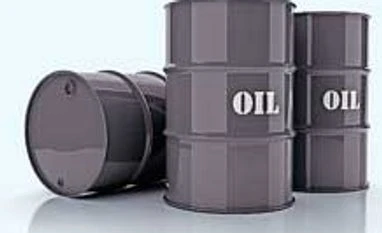The finance ministry had suggested EPP for pricing of imported fuel products so as to do away with the 2.5 per cent import duty while calculating the bill for subsiding the oil companies for their under recoveries. The pricing, according to finance ministry, will save around RS 18,000 crore a year in the subsidy bill.
In response, the petroleum ministry has written to its finance counterpart rejecting the proposal claiming it would hit the public sector oil undertakings hard as they would have no protection against imported products against their own refined products. The finance ministry on the other hand still insists on EPP while providing subsidy for the under recoveries to the oil companies for the end of the financial year 2012-13.
More From This Section
Under recovery is incurred by selling fuel products in the domestic market below the actual price. In a move that will hit oil PSUs hard, the Finance Ministry wants changes in the way petrol and diesel are priced by suggesting excluding the element of import duties to save about Rs 18,000 crore in subsidy bills.
Like any other product, traditionally domestic refiners enjoyed five per cent duty protection by way of higher customs or import duty on petroleum products (finished product) than on crude oil (raw material).
So, if crude oil attracted five per cent import duty, finished product was charged a customs duty of ten per cent. Some years back, the duty on finished product was brought down to 7.5 per cent and that on crude oil to 2.5 per cent.
A few years ago, duty on crude oil was brought to zero and that on products to 2.5 per cent, effectively reducing the protection refiners enjoyed from flooding of domestic marketed with cheaper imported fuel. Now, if the import duty on fuel is brought down to zero, the refineries will have no protection. There is no import duty on kerosene and LPG, the other two subsidised fuel.
The imported price of petrol and diesel, which includes customs duty, is used by the refineries to calculate the prices charged from retailers. The difference between this price and the pump price is the under-recovery or revenue loss, explained sources.
The Finance Ministry is of the view that the duty is adding to the under-recoveries of the state-run oil marketing companies (OMCs) without contributing any revenue to the exchequer.
The oil ministry on the other hand is of the view that they do not have ample flexibility to adjust the market price of fuel especially diesel to align with the international price of import plus margin. Even if they are free to price petrol, the timing is not instant as with the movement of international price. Therefore till the time the oil companies re not entitled entire freedom to charge auto fuels in the domestic price, the EPP pricing mechanism should be postponed. Otherwise, they will neither have the full freedom to price the fuel products while they do not pay the full price of import nor they have any duty protection against export of such fuel products. It will create further losses in the profitability. This would further lead to a change in the methodology for calculating the under-recoveries
)